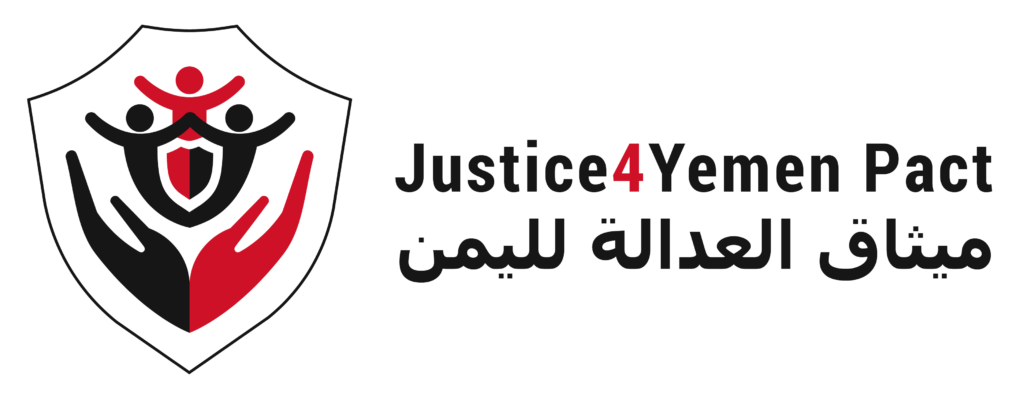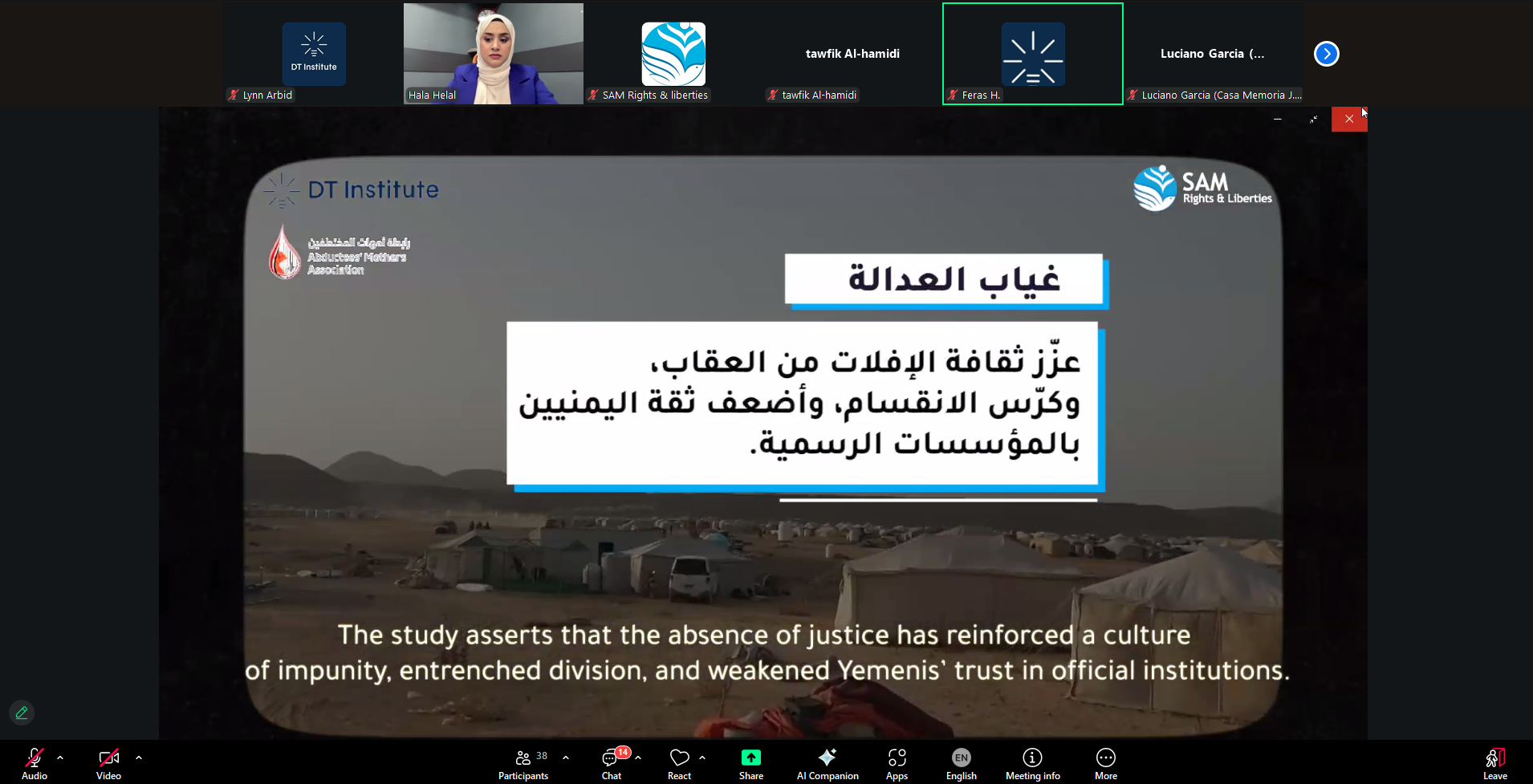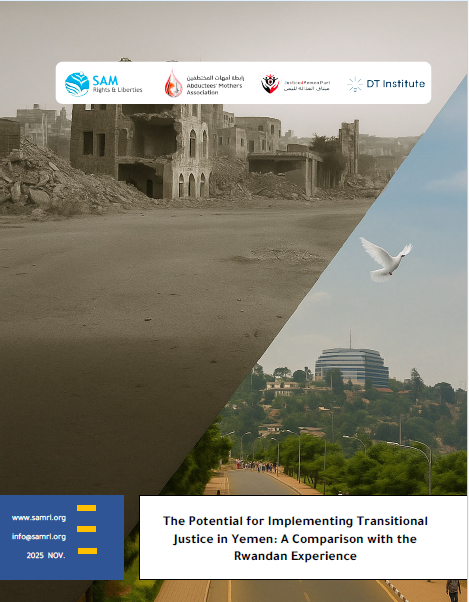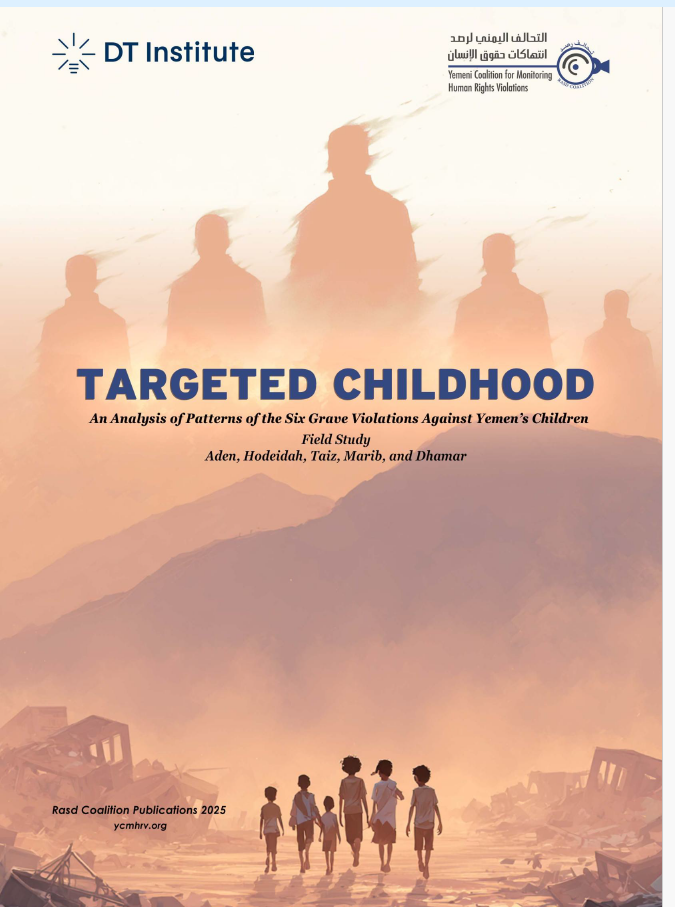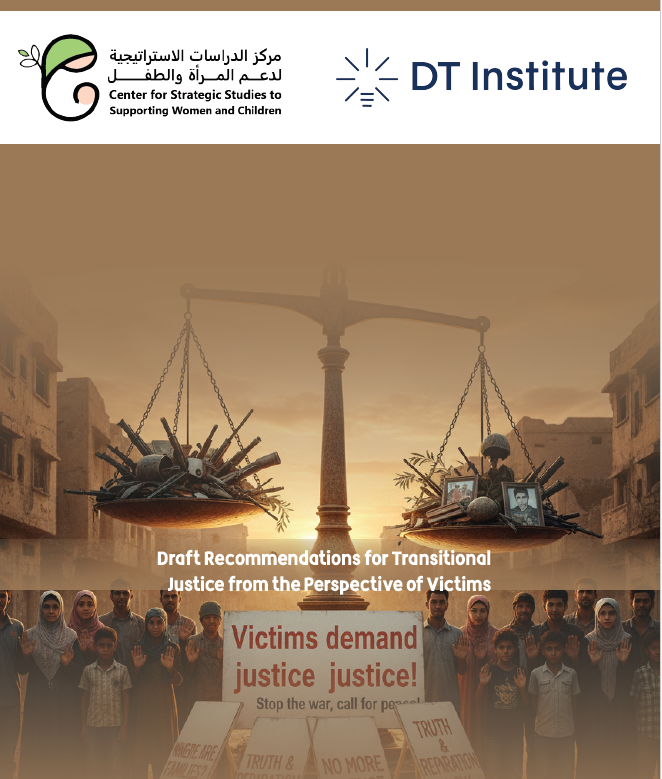October 30, 2025 – Yemen is exploring new paths toward accountability and reconciliation, drawing lessons from Chile’s decades-long transitional justice journey. Over 60 participants joined the first webinar organized by the Forum of Transitional Justice Ambassadors, represented by the SAM Organization for Rights and Liberties and the Abductees’ Mothers Association, under the SPARK Project supported by the DT Institute.
Titled “From Yemen to Chile: A Study on the Chilean Experience in Transitional Justice and Its Potential Application in Yemen,” the seminar aimed to chart practical steps for building a just peace in Yemen while placing victims at the heart of the process.
“Justice is not just in the law, but in the collective awareness of the people,” said moderator Dr. Hala Hilal, setting the tone for the discussion.
Key Insights:
- Dr. Adel Dashela highlighted Yemen’s decades-long “phobia of justice,” warning that impunity has left victims without redress. Drawing on Chile, he called for a unified national documentation system, comprehensive reparations, and turning sites of violations into spaces of memory and learning.
- Luciano García Schlegel outlined Chile’s journey through truth commissions, civil society-led memory projects, and the gradual evolution of justice. He emphasized that places of memory, like the José Domingo Cañas Memory House, are essential for healing, while sustainable funding and security reforms remain critical to prevent future abuses.
- Rubén Carranza, from the International Center for Transitional Justice, stressed that transitional justice does not automatically create stability, but when carefully sequenced, it opens opportunities for accountability, truth, and reparations. He noted that reparations require funding, including recovered assets from perpetrators, and should combine financial, symbolic, and community-based approaches.
Interactive discussions tackled issues such as civil society politicization, protecting collective memory, and documenting cross-border violations. Dashela noted:
“Transitional justice is a relative and gradual process. Reparations can serve as a practical entry point to bridge divides using both cultural traditions and modern legal tools.”
Key Recommendations:
- Create a national digital archive for testimonies under a neutral authority.
- Document individual stories, not just statistics.
- Transform sites of violations into public memory spaces.
- Build civil-societal-religious alliances to protect victims.
- Recover assets to fund reparations programs.
- Implement institutional and cultural reforms to ensure non-repetition.
The webinar concluded with a strong message: “A just peace begins with truth and fairness.” Yemen’s challenge now is to translate Chile’s lessons into a context-sensitive path that acknowledges victims, preserves memory, and gradually builds a sustainable justice framework.

